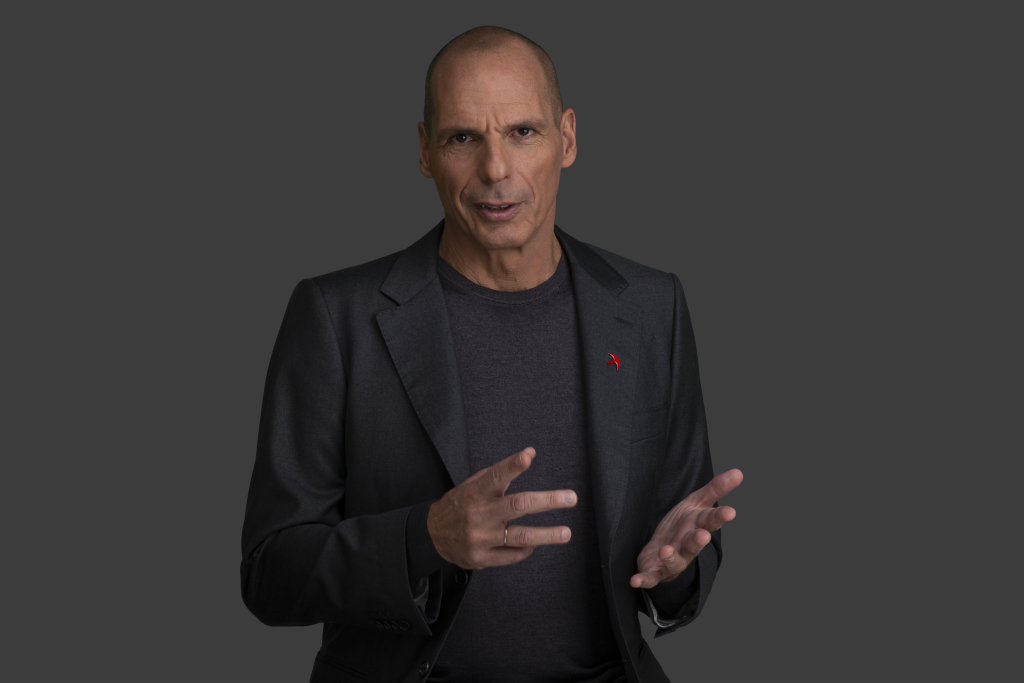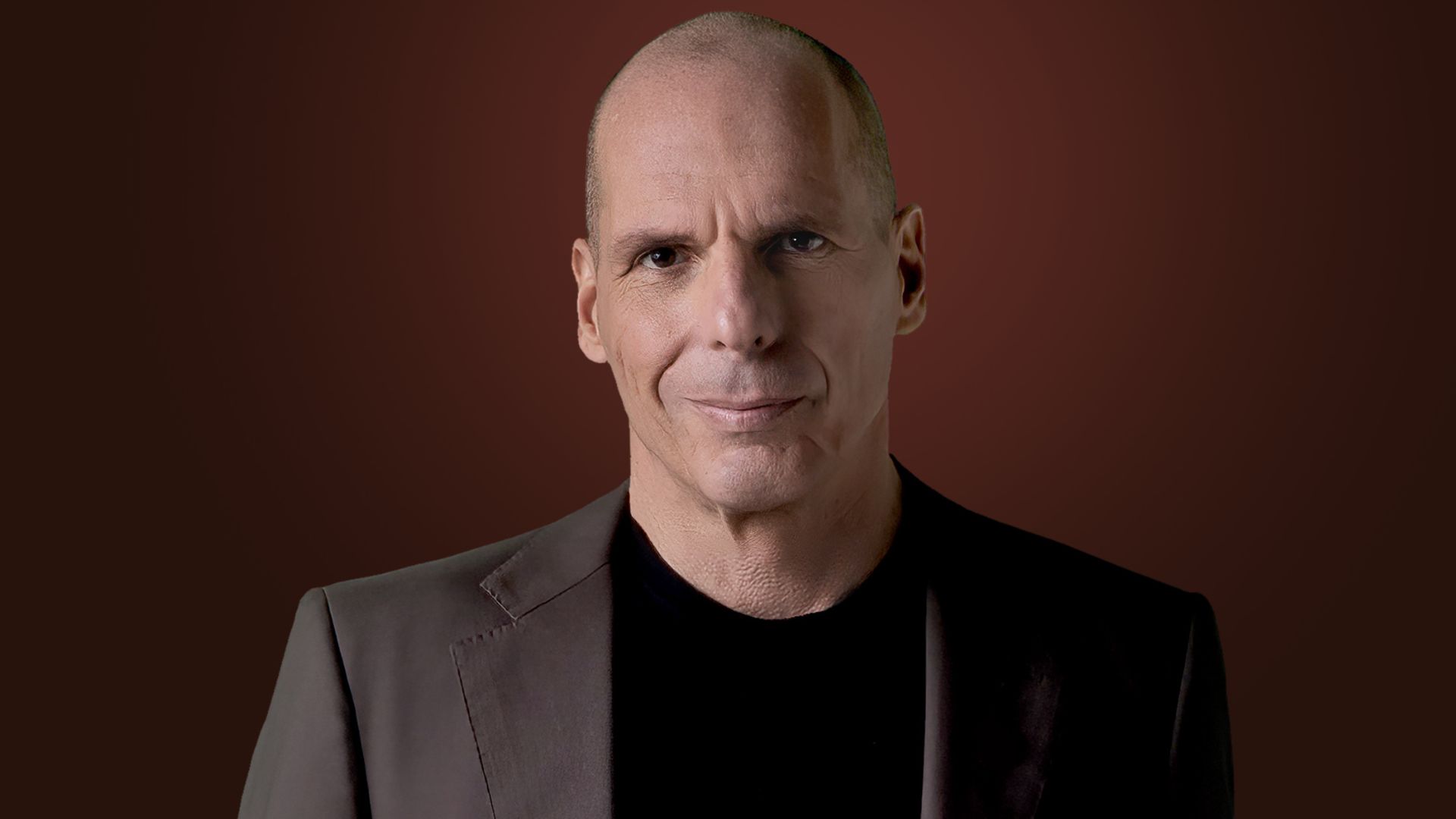Yanis Varoufakis speaks exclusively to The Greek Herald shortly before his lecture at the University of Sydney on the occasion of the publication of his new book through which he explains why techno-feudalism is the biggest threat to democracy.
By Panagiotis Dalatariof
Yanis Varoufakis has returned to Australia this year and to the University of Sydney, accepting the invitation from his old haunts to deliver a lecture to the students of the department where he was a professor (he taught economic theory and political philosophy until 2000).
The founder of MeRA25 spoke to The Greek Herald about his impatience to be back in the classrooms where he was a professor, referred to the postal vote for the Greek diaspora, while also commenting on Green Senator Nick McKim’s proposal to nominate him for next chief of Australia’s Central Bank.
In your book it says that capitalism is dead. Some of your intellectual adversaries will claim that capitalism, however, has the stubborn ability to consistently appear.
You remind me of the advice given by the great Scottish philosopher David Hume to prevent this kind of argument: ‘The goose that thinks it will never be eaten because it has been fed every day is surprised when one day its head is cut off.’ So we too today would be wrong to think that capitalism is immortal because it has survived so far for almost three centuries overcoming a thousand crises.

What makes you think capitalism is no longer relevant?
It is not a matter of relevance but of the two foundational pillars on which it rests – pillars that have been toppled without us noticing. Which pillars? Markets and profit. These were the two foundations of capitalism. Markets, the medium through which the most important commodities (from food and machinery to labour) were traded, and profit, the fuel that drove capitalism. What broke them? A mutation of capital (which I call cloud capital) that – like a mutation of a virus into something more toxic that kills the organism in which it lives – killed capitalism and replaced markets with digital platforms (e.g. amazon.com or alibaba.com) and profit with a form of rent (cloud rent).
How would you describe ‘technofeudalism’ as described in your book?
Let’s take for example the moment you enter amazon.com. At that moment you are out of capitalism. Why am I saying this? Isn’t it another market, albeit a digital one? No, it is not. Yes, inexperienced buyers and sellers crowd in there. Yes, Amazon is a trading platform. But, no, it’s not a market. Yes, it belongs to a man named Jeff. But, no, it’s not a monopoly. It is much, much more than a monopoly market.
Jeff does not own the factories that make the products you buy on his platform. He owns something much more important: The algorithm that is trained to know you perfectly, so that it “pairs” you with a seller, whom it also knows perfectly, in order to maximise the probability that each such “pairing”, each such transaction, will yield, for Jeff, the highest annuity he can charge the seller for what you’re buying. Up to 40 per cent of the price you pay is pocketed by Jeff.
So the same algorithm we help train in real time to know us inside and out, this same algorithm modifies our preferences and manages the selection and delivery of merchandise that will satisfy those preferences.
Consider this: If you and I type in “electric bikes” or “binoculars” while on amazon.com, you and I will get completely different recommendations. In a traditional market, in a mall, it would be like walking side by side, with our eyes pointing in the same direction, at the same window, but seeing different things depending on what Jeff’s algorithm wants us to see.
As you browse amazon.com, you are in algorithmically constructed isolation where, unable to see each other, we only see the algorithm that sees everything. In fact, we only see what Jeff’s algorithm allows us to see in order to maximise his cloud rent – today’s version of the land rent that feudal lords extracted from their vassals and colleagues.
This is not capitalism. Welcome to technofeudalism!

Why do you consider it as the biggest threat to democracy?
Let’s remember Aristotle’s definition according to which a democracy is a regime where the poor decide, as the poor make up the majority of any society. In a techno-feudal society, where internationally a dozen techno-feudal lords own not only enormous wealth (greater than the combined market value of all the companies in Australia, Canada, Britain, France, Japan and China) but also the algorithms where they make huge profits by poisoning public debate (eg, X, Facebook, Instagram, etc), democracy is less possible than it was in Medieval Europe.
How does it feel to be in Australia where you have lived and taught as a Professor of Political Economy at the University of Sydney?
It is the first time since 1988, when I immigrated to Australia escaping Britain, that I have been away for so long. In fact, the last time I was in Australia was a few days before the lockdown in February 2020. So, it’s no secret that I can’t wait to set foot on Australian soil again. And since you’re referring to the University of Sydney, I’ve just been delighted to be invited back to the old stomping grounds to deliver a lecture to the students of my old department – but it will be open to the general public (on Monday 11th March at 10am).
Do you have an opinion on the centre-left Albanese government that succeeded Scott Morrison’s Liberal Party?
It’s a better government, but that wasn’t too difficult to achieve.
How does Mera25 judge/comment on postal voting for the Greek diaspora?
In MeRA25 we demand that expatriates have the right, without exception, not only to vote but also to be elected. The postal vote gives the possibility to vote but not to choose their own people to represent our communities in the Hellenic Parliament. This is unacceptable. You should not be forced to vote for the candidates in Patras for example, when you live in Melbourne or Hobart.
For this reason, as of 2019, MeRA25 submitted a Law Proposal that would essentially restore the right of expatriates both to vote and to be elected. How? By creating overseas constituencies – for example, South East Australia – with full equivalence of seats and registered people both inside and outside of Greece. Unfortunately, none of the other parties voted for it because they are afraid of homogeneity – because they want you voters but not co-formators of the collective decisions of Hellenism.
Regarding the postal vote, MeRA25 insists on paper voting at the ballot box. For two reasons: First, without a screen, the privacy of the vote is removed (eg: someone can demand to see what you’re voting on, which is not possible at a polling station). Secondly, the argument that many expats are not close to a Consulate to vote is bogus as MeRA25 proposed that polling stations should also be set up in communities, churches and even parish cafes – something that would energise our communities across Australia.
What about the influence of the Indigenous Australians?
Not interested. Really! Having lived for twelve years in Australia, having listened to the pain of my fellow citizens for the way they are treated and exploited by the Greek political system, I am interested in one thing: that you are finally given your political rights. If you then decide that MeRA25 deserves your vote, that would be a welcome bonus for me – nothing more.
The fight for the release of Julian Assange continues, while the suspense over his extradition to the USA is prolonged.
Julian is a personal friend of mine, and so his slow assassination, which is being deliberately carried out today by the British and American states (with the perennial complicity of the Australian state), touches me personally, not just politically. His only “crime” is exposing crimes committed by our governments in our name. His ongoing torture has one goal: To intimidate you, and every journalist, into self-censoring if you come across evidence of our rulers’ crimes against humanity.
How optimistic are you about this case and are you satisfied with the efforts of the Australian government?
I’m not optimistic at all. British judges have time and again proven themselves to be inferior to the circumstances. As for the Australian government, Prime Minister Albanese’s promise to pressure US President Joe Biden to end Julian’s prosecution has proved empty. If he wanted to, he could easily make Julian’s release a condition of continuing the… AUKUS deal, which funnels many billions into US coffers. He chose not to.
Senator Nick McKim had nominated you for the role of chief at Australia’s Central Bank. How did you take this prospect and, would it be a challenge you would be interested in?
I am honoured by the Senator’s proposal and I thank him for it. Although central banking matters interest me deeply, and I follow them closely, the position of Central Banker is not for me. That’s because, once you take up such a position, you have a moral and professional obligation not to communicate the truth to the world – or at least, to borrow Malcolm Turnbull’s expression, to “save the truth” – which I neither can nor do.

